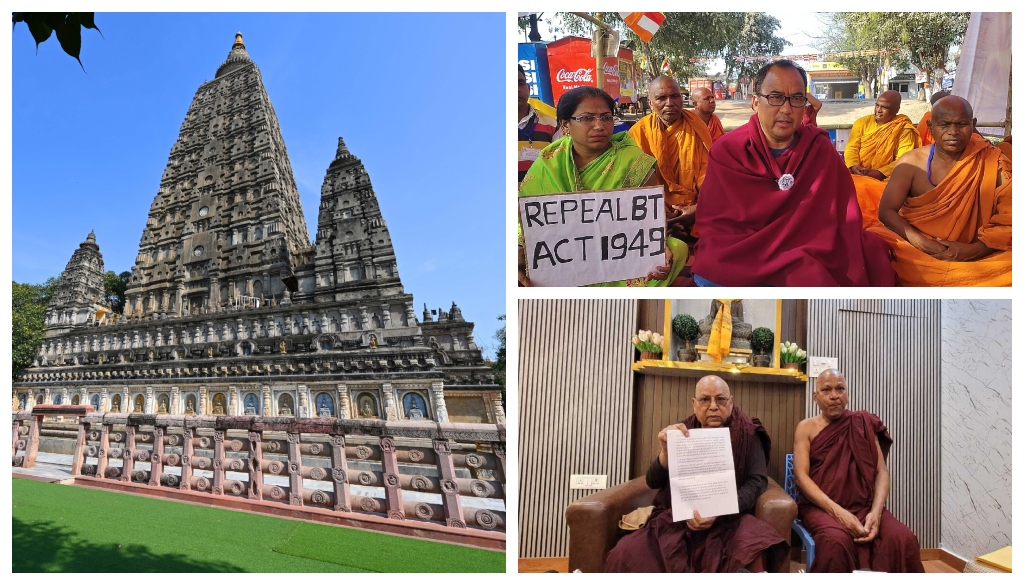Who Should Govern Mahabodhi Temple? Protests in Bodh Gaya Revive Old Debate

Bodh Gaya: Bodh Gaya, the site where Gautama Buddha is believed to have attained enlightenment, has become the epicenter of a contentious dispute over the management of the revered Mahabodhi Temple. Since 12 February, a coalition of Buddhist monks and supporters, led by Akash Lama of the All India Buddhist Forum (AIBF), has been staging an indefinite hunger strike, demanding exclusive control of the temple’s administration. They argue that the current governance structure, established by the Bodh Gaya Temple Act of 1949, disproportionately favors Hindu representation and undermines Buddhist authority over their sacred site
The 1949 Act mandates an eight-member committee to oversee the temple’s operations, comprising four Hindus and four Buddhists, with the district magistrate of Gaya serving as the ex-officio chairman. Critics contend that this arrangement perpetuates historical injustices and fails to reflect the temple’s significance to the global Buddhist community.
In response to the protests, Bhadant Anand Mahathera, president of the Mahabodhi Mukti Andolan, held a press conference on Wednesday, condemning the demonstrations as “illegal and motivated by wrong intentions.” He asserted that the protesters lack a genuine understanding of Buddhist teachings and are engaging in activities that tarnish the sanctity of Bodh Gaya. Mahathera further alleged that the movement is politically driven, aimed at undermining India’s international reputation, and may have connections to anti-India elements seeking to disrupt national unity.
The Bihar state government has acknowledged the protests, with Gaya District Magistrate S.M. Thiyagrajan informing the home department of the ongoing agitation. Despite this, the administration has yet to propose a resolution to address the demonstrators’ demands.
The Mahabodhi Temple, a UNESCO World Heritage site, holds profound spiritual significance for millions of Buddhists worldwide. As the sit-in continues, authorities are closely monitoring the situation to prevent any escalation. The outcome of this dispute could have lasting implications for the management of the Mahabodhi Temple and the broader discourse on religious administration in India.





